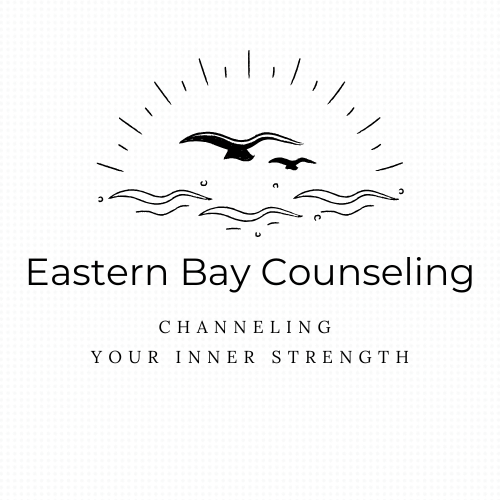
Frequently asked questions.
FAQs
How can counseling help me?
Life can get pretty messy sometimes, right? Whether it's dealing with awkward moments, managing your emotions, or just trying to handle the everyday chaos, we all need some support now and then. That’s where counseling steps in. Lots of people find that it boosts their confidence, strengthens relationships, and helps improve their mood overall. During our consultation call we can talk about how counseling can help you specifically.
How long/frequent are sessions?
Sessions last approximately 50-60 minutes, with the initial intake session being a full hour. Many clients prefer weekly sessions but sometimes biweekly sessions are more appropriate. We can discuss this during your consultation and intake appointment.
Do you take insurance?
Eastern Bay Counseling is an out-of-network provider. We can send you something called a “superbill” that you are able to submit for potential reimbursement from your insurance provider. Check with your insurance to see if you have “out of network benefits” for mental health counseling.
What are your rates?
Individual Intake Evaluation 1 hour: $175
Individual Follow up sessions: $150
EMDR Sessions: $175
Couples Intake Evaluation 1 hour: $200
Couples Follow up sessions: $180
What is telehealth therapy?
Currently Eastern Bay Counseling offers therapy sessions via telehealth only. Telehealth therapy is a convenient, secure, and confidential way to receive the support you need from the comfort of your own home. Our telehealth platform is HIPAA compliant.
What is EMDR?
Eye Movement Desensitization and Reprocessing (EMDR) is a neuroscience-based therapy that helps people heal from trauma using bilateral stimulation such as eye movements or tapping. EMDR helps the brain reprocess painful memories.
In addition to trauma, EMDR has proven to be highly effective in addressing symptoms related to anxiety, grief, and persistent self-critical thoughts. For individuals navigating loss, EMDR can help release the emotional pain tied to memories and support the integration of grief in a healthier, less overwhelming way.
